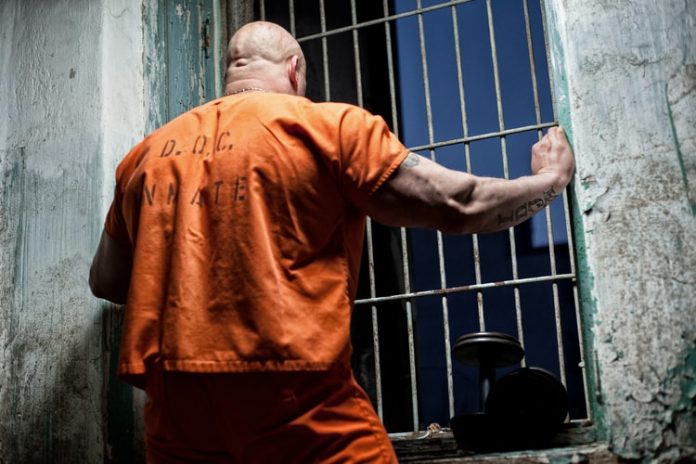This article is written by Ronika Tater, from the University of Petroleum and Energy Studies, School of Law. In this article, she discusses the rights of the prisoners in custody during the COVID-19 with the support of case laws and constitutional provisions. And also highlights the current situation of prisoners.
Table of Contents
Introduction
“No one truly knows a nation until one has been inside its jails. A nation should not be judged by how it treats its highest citizens but its lowest ones”- Nelson Mandela.
The COVID-19 pandemic has shown an unprecedented change in every sphere of life and it has made us realize the importance of the health and safety of each irrespective of their status in society. Every individual is envisaged with the basic rights of health, water, shelter, clothing, sanitation, food, education, etc. India’s prisoners are overcrowded with nearly 70% of undertrial prisoners. The reason for such overcrowding in prisons is due to the lack of infrastructure, health facilities, quality legal aid, financial facilities, and lack of family support. As per the Prison Statistics India Report 2019, there has been a report of 4.78 lakh inmates in around 1300 prisons in the country. Due to the increasing rage of the COVID-19 pandemic in the world, the prisoners are the most affected people considering their social and economic sections. However, the prisoners while in custody are entitled to basic human rights as per the national laws and international conventions. The term prisoners mean any person for the time being in prison imposed by a court or has been detained in legal custody. This article highlights the recent case laws stating the measures issued by the courts and the government to protect the rights of the prisoners and other officials in the prisons.
Rights of prisoners provided in the Constitution
Article 21 of the Constitution states the protection of life and personal liberty to every individual regardless of anything as per the procedure established by law. In the case of Kharak Singh v. the State of U.P, (1964), the Court explained the term ‘Prison justice’ which means that it is the implied duty of the court and the authority to ensure that judicial warrant does not exceed to deprive a person of his life or liberty. In cases where the prison follows inhumane treatment breaching the guaranteed rights of the citizen, the courts come into the picture. In the similar case of Maneka Gandhi v. Union of India, (1978), the Court held that it is not the duty of the judiciary to intervene in the working of the State penal system. But in the case of undue harshness and torture in the name of discipline and security, there will be no immunity from courts writs. Thus, the Court made every essential point that the rights enjoyed by prisoners under A. 14, A. 19 and A. 21 are not static but will light to human heights when the unexceptional situation arises.
During the pandemic, the spread of the virus has affected everyone’s safety, especially the lives of the inmates and the police officers working in the prisons. We know that India has more than four lakh prison inmates and the condition of prisons is overburdened beyond optimal capacity. Hence, the basic principle to overcome the pandemic and stop the virus from spreading is social distancing and maintaining proper hygiene which is contrary in the case of prisons. The courts are the sentinel on the qui vive of the fundamental rights of the citizens in India and it is the duty of the court to lay down guidelines and strict measures to uphold the rights of the citizen. Moreover, the courts should follow the guidelines laid down in the case of Arnesh Kuman v. State of Bihar, (2014), to control and limit the authorities from arresting accused as below-mentioned:
- To ensure that the police officers do not arrest the accused on unnecessary grounds, the Magistrate should consider the necessity for detention carefully.
- If the accused is guilty of an offence under Section 498A Indian Penal Code, 1860 (IPC), then the court should be satisfied under the limits laid down under Section 41 the Code of Criminal Procedure, 1973 (CrPC) before arresting.
- The checklist under S.41 CrPC must mention the reasons and materials for necessitating the arrest of the accused before the Magistrate for detention.
- In case of non arresting the accused, the decision should be provided to the Magistrate and a copy may be extended to the Superintendent of police of the district within two weeks in writing.
- In case of non-failure of the direction, departmental action against the police officer can be taken place constituting contempt of court.
- It is essential to note that the direction is not limited to S. 498A IPC or Section 4 of the Dowry Prohibition Act, 1961 but also to the case where the offence of the punishment for imprisonment for a term is seven-year or extend to seven-year with or without fine.
Right to health
The right to health is not explicitly mentioned in the Constitution of India. However, A.21 impliedly states it to be one of the essential parts of the right to life enshrined in the Constitution. In the case, Paschim Bangal Khet Mazdoor Samity & Others v. State of West Bengal,(1996), the court held that it is the State’s constitutional obligation to provide adequate medical service to the people. While providing free medical aid the State must ensure to allocate funds for medical services. The court also stated that any lapse in providing the medical service would be held liable for appropriate administrative actions by the State. Hence, it is clear that the fundamental right to health is provided to prisoners. In the case, Charles Sobhraj v. The Superintendent Central Jail, Tihar, New Delhi, (1978), the court declared that imprisonment does not mean farewell to fundamental rights. Thus, all fundamental rights are equally available to the prisoners, however, some restrictions may be imposed due to the nature of their offence. The court also stated that non-providing of the essential health facilities would lead to violation of their fundamental rights thereby, giving rise to the remedy of the courts.
Other provisions
‘Prisons/persons’ detained therein’ is a State subject mentioned under Entry 4 of List II of the Seventh Schedule of the Constitution of India. It states that the administration and management of prisons is the responsibility of respective State Governments. The Ministry of Home Affairs provides regular guidance and advice to States and Union Territories on various issues of prisons and prison inmates. Section 4 of the Prisons Act, 1894 provides for sanitary accommodation facilities for the prisoners. Section 7 of the Prisons Act, 1894, provides for the provision of shelter and safe custody facilities to prisoners. It is also essential as per the Act that the prisoner before admission into the prison must be checked for inter-State transfer between the States. Thus, the Transfers of Prisoners Act, by a medical practitioner. There is no specific provision in any of the Prisoners Act for 1950 that provides a legal sanction to such transfers or removals of the prisoners from one State to another or vice-versa.
The Repatriation of Prisoners Act, 2003 provides for the transfer of prisoners from India to other countries or places outside India or receiving prisoners in India from countries or places outside India. It also states that the transfer of prisoners from India to a contracting State will not affect the power of any court to pass any judgement to review and the power of the Central Government or the State Government to suspend, remit or commute the sentence as per the provisions of law. The Model Prison Manual, 2016 mentions extensive guidelines for prisons in situations of epidemic breakout. In such a circumstance, the prison must be acquitted with permanent segregation cells and wards for every infected prisoner, overcrowding should be in check, and medical treatment of patients on regular basis.
Further, considering the increase in cases of COVID-19, the Ministry of Home Affairs had issued an advisory on March 12, 2020, for prevention and control of COVID-19 in prisons and correction homes in consultation with the Ministry of Health and Family Welfare on May 2, 2020. The following advisory provides the guidelines and protocols for the safety and security of prison inmates and jail staff. The States and Union Territories must ensure proper implementation of the guidelines and take necessary steps to disseminate the following guidelines at all levels of the Prisons. The following measures are below-mentioned:
- To follow test-track protocol which consists of aggressive testing for prior detection of Covid-19 and accordingly timely isolation and treatment should be provided.
- To ensure an effective mechanism for screening and risk assessment for inmates and jail staff.
- To ensure less movement of jail inmates outside the jail thereby, updating using the video-conferencing facility for production or testimony in courts.
- To encourage telephonic calls or meetings of the prisoners with their visitors by using a conferencing facility such as e-mulakat, a module under the e-prisons project.
Prisoners’ rights during COVID-19
In 2020, the World Health Organisation (WHO) declared COVID-19 as a pandemic. Consequently, the Supreme Court of India took suo moto cognisance regarding the spread of the virus in prisons. In Re Contagion of COVID-19 virus in prisons (2020), the Court examined the current situation of the spreading of the virus in prisons and constituted a High Powered Committee at the State level. The committee is headed by the chairperson of the State Legal Services Authority to decide who needs to be released on interim bail or parole based on the situation based on the State. Due to the recommendation of the High Powered Committee, many inmates have been released on interim bail or parole. However, due to a reduction in the number of cases, the released prisoners have been reported to return to prison. Considering the present scenario, there is a serious concern for the requirement for effective management of the pandemic within the walls of the prison. Thus, the court issued the following measure as below-mentioned:
- The High Powered Committee constituted in the State should release the prisoners after adopting the guidelines laid down in the Arnesh Kumar case.
- The High Powered Committee needs to determine the category of prisoners who should be released based on the nature of the offence, the prison sentence, severity of the offence, stage of a trial, and other relevant factors.
- The High Powered Committee should not only release the fresh inmates but also last year inmates.
- To provide a transparent administration by showing the status of prisoners occupancy in the prison. It is the duty of all the State and other government bodies to publish the decisions of the High Powered Committee on their respective websites to enable effective dissemination of information.
Concerns of the prisoners
Some of the prisoners are not willing to be released on parole or interim bail due to their socio-economic background and the fear of COVID-19. In such as case, the authorities should be directed to follow the below-mentioned procedures to ensure their safety concern:
- To provide the inmates with basic knowledge about the virus and its effects.
- To ensure proper medical facilities for all prisoners who are imprisoned through regular testing of both the inmates and the jail staff.
- To ensure daily hygiene, proper food, and sanitation.
- To ensure suitable precaution to prevent the transmission of the virus among the prisoners.
- To take appropriate steps to ensure the safety while transportation of the released inmates of the prison.
Conclusion
The Supreme Court order to State governments and Union Territories is appreciated. However, there is a need for effective implementation to ensure the safety of the inmates. On October 5, 2020, the National Human Rights Commission (NHRC) issued an advisory on the Human Rights of Prisoners and Police Personnel stating that the fundamental rights of the prisoners cannot be violated and made the recommendation. The recommendation consists of ensuring essential healthcare facilities, appropriate testing of inmates, sufficient stock of medicines, social distancing, and proper ventilation.
References
- https://legislative.gov.in/sites/default/files/A1894-9.pdf.
- https://www.livemint.com/politics/news/as-coronavirus-cases-rise-indian-jails-begin-releasing-prisoners-on-bail-11585569499656.html.
LawSikho has created a telegram group for exchanging legal knowledge, referrals, and various opportunities. You can click on this link and join:
 Serato DJ Crack 2025Serato DJ PRO Crack
Serato DJ Crack 2025Serato DJ PRO Crack











 Allow notifications
Allow notifications


